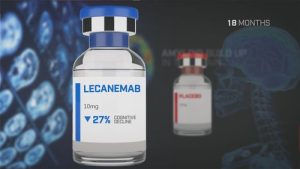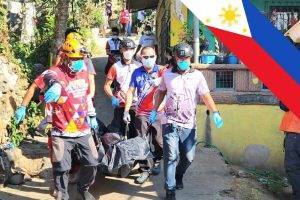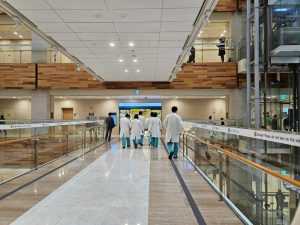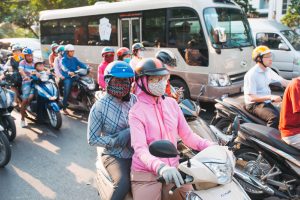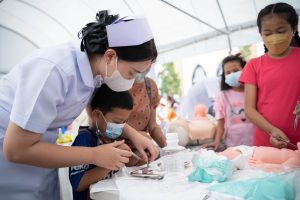Definition: Seizure Vs Epilepsy
A seizure is an abnormal surge in electrical activity in the brain which may affect a person’s consciousness, movements, sensations, emotions or behaviour. A seizure is a single event while epilepsy is the disease involving recurrent unprovoked seizures. In another article, we have learnt about the causes, triggers, and types of seizures, that make up epilepsy.
PSA: Medical Channel Asia (MCA) is now on Telegram! Join us here https://t.me/MedicalChannelAsia for daily reads and the latest updates at your fingertips!
Diagnosis
A person is diagnosed with epilepsy if they have had two unprovoked seizures (or one unprovoked seizure with the likelihood of more) that were not caused by some known and reversible medical condition e.g. high fever, alcohol withdrawal or extremely low blood sugar. The physician will make a diagnosis based on:
- A review of your family and medical history including detailed recounting of seizures
- Neurological tests e.g.
- Electroencephalogram (EEG) to detect electrical abnormalities in the brain;
- Magnetic Resonance Imaging (MRI) scans to look for structural abnormalities like tumours in the brain
- Positron Emission Tomography (PET) scan to evaluate the functioning of different regions of the brain and determine where seizures originate
- Blood tests to determine if there are underlying health conditions causing seizures e.g.
- Infections, diabetes
- Recreational drug exposure
Living with Epilepsy
Epilepsy can have certain implications on daily life, they include:
- Driving: A person may not be allowed to drive unless he/she can provide documentation of being seizure-free for a specific period of time
- Examples of restrictions across different countries (as of 2017):
- In Singapore, one must be seizure-free for 3 years, be off anti-seizure drugs for ≥1 year, have a normal EEG and no brain lesions
- In Japan, Korea and Malaysia, one must be seizure-free for 2 years;
- In Thailand, there is no restriction
- Recreation: Certain activities like swimming, water sports and climbing may need to be avoided
- Pregnancy: Certain anti-seizure drugs may cause birth defects e.g.:
- Valproate may increase risk of developmental delays and autism
- Oxcarbazepine may cause spinal cord and limb/skeletal malformations
- Lamotrigine may cause cleft lip and urinary system abnormalities
- With appropriate planning, use of safer AEDs at minimum effective doses during pregnancy and close monitoring, most epileptic women can have a healthy pregnancy with good outcomes for themselves and the developing child
Epileptics are also at risk of 2 life-threatening conditions
- Status Epilepticus
- It is when a seizure lasts > 5 minutes, or having >1 seizure within a 5 minute period
- It is a medical emergency that may lead to permanent brain damage, physical disability or death
- Sudden Unexplained Death in Epilepsy (SUDEP)
- Dying from epilepsy alone as in the case of SUDEP is rare
- How SUDEP leads to death could possibly be due to oxygen deprivation with pauses in breathing during convulsive seizures, or seizure-induced heart arrhythmias
- According to the Centre for Disease Control and Prevention (CDC), there are ~1.16 cases of SUDEP for every 1000 people with epilepsy
- Most seizure deaths come from external factors e.g. drowning, falling, or choking that occur during a seizure
First Aid
If you encounter a seizure, you may administer rescue medication as appropriate or available if you are an epileptic’s caregiver. If not, the following are some useful tips for rendering assistance to a person having a seizure.
- Encourage people to step back and give the person some room
- Clear the area around the person of anything hard or sharp
- Do NOT hold the person down or try to stop their movements
- Loosen tight clothing or accessories around neck
- Cushion their head e.g. with a soft piece of clothing
- Turn them on their side with their mouth pointing toward the ground. This prevents saliva from blocking the airway for easier breathing
- Do NOT put any objects like a spoon into a person’s mouth. Jaw and face muscles may tighten during a seizure, causing the person to bite down. If something is in the mouth, the person may break and swallow the object or break their teeth.
- Call an ambulance if the seizure lasts for >5 minutes
- Do NOT offer water or food until the person is fully conscious. Food, liquid or pills could go into the lungs instead of the stomach if they try to drink or eat when not fully aware.
- Stay with the person till further support arrives; be reassuring




